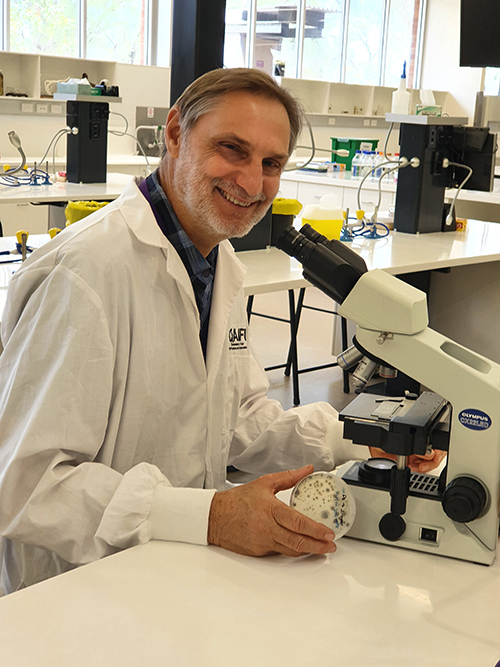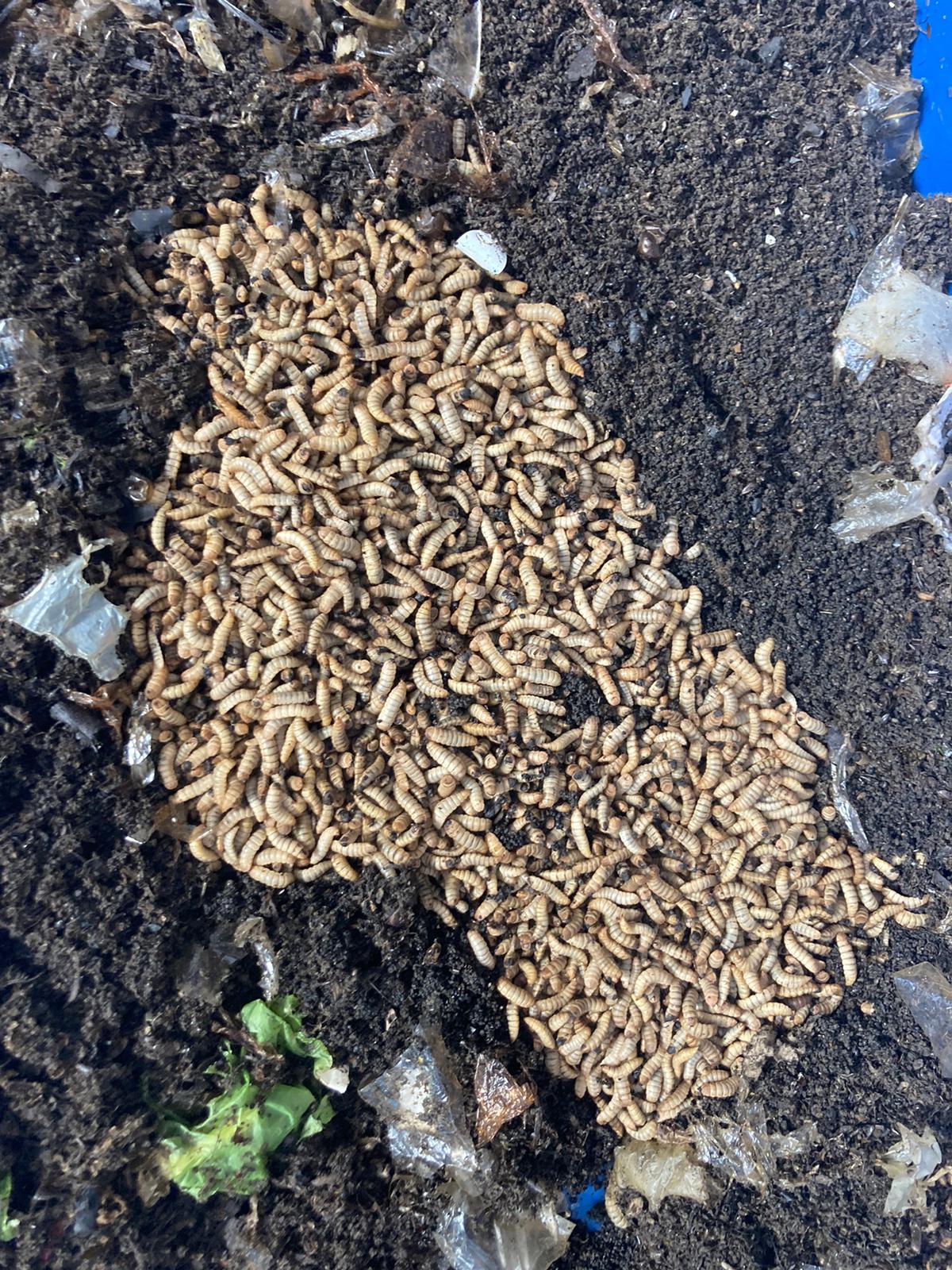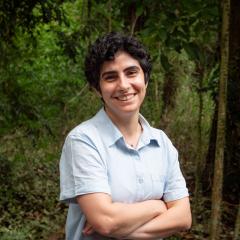A supply chain that uses insects to upcycle food waste into high-grade protein, animal feed and fertiliser is being built in Australia with the help of University of Queensland researchers.
Key to this innovation is the black soldier fly (Hermetia illucens) and the 3.32 million tonnes of food waste that ends up in landfill.
Professor Louw Hoffman from the Centre for Nutrition and Food Sciences at the Queensland Alliance for Agriculture and Food Innovation (QAAFI) said solving the challenge of diminishing global food security required new thinking.
“In the past, when food security became an issue, we could bring more land under cultivation and intensify production systems,” Professor Hoffman said.
“We no longer have those options given finite soil, water and fertiliser resources.
“Now, we are faced with the challenge of producing and consuming food more efficiently, using essentially the same resource base.”

A world leader in the space, Professor Hoffman is working with industry and food safety regulators to create a sustainable protein supply chain.
The Fight for Food Waste Cooperative Research Centre (CRC), the world’s largest dedicated food waste R&D program, is co-funding collaborative work between Goterra, and The University of Queensland.
The larvae of the black soldier fly are already used to upcycle food waste into nitrogen-rich fertiliser.
Canberra-based project partner Goterra uses modular shipping containers to generate tonnes of upcycled compost/soil amendment.
This project takes it one step further, bringing the larvae into animal feed markets.
“With this project, we have an opportunity to create a novel and sustainable supply chain of high-value proteins that sits well with a contemporary appetite for responsibly sourced food, especially proteins,” Professor Hoffman said.
“It can also help divert grain currently used to feed animals back to humans through the use of balanced livestock feed formulations that include insect proteins.”
However, while the black soldier larvae are edible, they are only approved for fish and poultry consumption in some jurisdictions and not to pigs or ruminants.
Discussion with Food Standards Australia New Zealand (FSANZ), will ensure the research team conducts industry-relevant testing to provide the necessary food safety data.
“Using food waste to grow the larvae raises three key safety issues,” Professor Hoffman said.
“These issues relate to the larvae potentially accumulating microbial, heavy metal and allergen contaminants.”

The first findings have recently been published, and the results are promising, with rinsing and blanching to process the insects proving particularly effective at reducing microbial load.
Drying had so far proved the best storage method to avoid microbial spoilage in both refrigerated and room temperature conditions.
The strategy was first to roll out larvae production as feed for fish and chickens.
The QAAFI team is now working its way up the food chain, clearing safety issues as they arise.
“The intention here is not to replace livestock but to create an alternative protein source that helps remediate food waste while easing pressure on agricultural food production systems,” Professor Hoffman said.
“Furthermore, producing the larvae is a process that is well suited to automation, allowing for scaled-up of production without drawing on over-stretched natural resources.”
The Fight for Food Waste CRC, TRANSFORM Program Leader Francesca Goodman-Smith said the use of insects could help to convert a food waste crisis into an opportunity.
“Food waste costs Australia $36.6 billion per year,” she said.
“Of the 7.6 million tonnes of food wasted each year, around three million tonnes of waste is difficult to process and is currently destined for landfill.
“Enabling the use of black soldier flies to upcycle food waste into food and feed has the potential to shift the dial on Australia’s efforts to halve food waste by 2030.”
Research contacts: Professor Louw Hoffman, The University of Queensland, louwrens.hoffman@uq.edu.au ,+61 (0)417 984 547; Ms Francesca Goodman-Smith, Transform Program Leader, Fight Food Waste CRC, francesca@fightfoodwastecrc.com.au +61 (0)499 035 420.
Media contacts: Natalie MacGregor, UQ QAAFI Communications, n.macgregor@uq.edu.au, +61 (0)409 135651.
Photos are available from Dropbox.
Research papers:
“Legislative landscape of black soldier fly as feed" (doi.org/10.3920/JIFF2021.0111) in Insects as Food and Feed, October, 2021
“Food safety of consuming black soldier fly larvae; microbial, heavy metal and cross-reactive allergen risks” (doi.org/10.3390/foods10081934) in Foods, August 2020.
Near Infrared Spectroscopy as a Traceability Tool to Monitor Black Soldier Fly Larvae (Hermetia illucens) Intended as Animal Feed (doi:10.3390/app12168168) in Applied Sciences, August 2022.
The Queensland Alliance for Agriculture and Food Innovation is a research institute at The University of Queensland supported by the Queensland Government via the Queensland Department of Agriculture and Fisheries.



